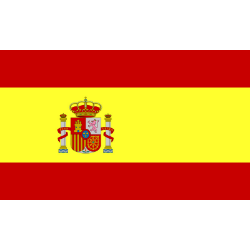Whenever I think about why we are here on this planet, the best answer I can come up with is to love one another. Love is, by far, the most beautiful, exhilarating and mind-blowing emotion we can experience.
It has its ups and downs – it may lift you up, it may bring you down. It might make you the happiest person in the world, it can also put you through hell. Anyhow, we all need somebody to love.
In this article we are going to introduce you to some of the most common English idioms about love you may use when talking about this wonderful feeling.
This “Idioms about Love” image was created by Kaplan International. Click here to see the original article or to discover how you can study English abroad.
1. FALL IN LOVE WITH SOMEBODY
start feeling love towards somebody
- I think I’m falling in love with my best friend. What should I do?
English  |
I think I’m falling in love with my best friend. What should I do? |
Spanish |
Creo que me estoy enamorando de mi mejor amigo. ¿Qué debo hacer? |
French |
Je pense que je suis en train de tomber amoureux de mon meilleur ami. Que dois-je faire ? |
Italian |
Penso che mi sto innamorando del mio migliore amico. Cosa devo fare? |
German |
Ich glaube, ich bin dabei, mich in meinen besten Freund zu verlieben. Was soll ich tun? |
Portuguese |
Penso que estou a apaixonar-me pelo meu melhor amigo. O que devo fazer? |
Russian |
Кажется, я влюбляюсь в свою лучшую подругу. Что мне делать? |
Chinese |
我想我爱上了我最好的朋友。我应该怎么做? |
Japanese |
親友を好きになってしまったようです。どうしたらいいですか? |
Polish |
Myślę, że zakochuję się w moim najlepszym przyjacielu. Co powinnam zrobić? |
Hungarian |
Azt hiszem, beleszerettem a legjobb barátomba. Mit tegyek? |
Swedish |
Jag tror att jag håller på att bli kär i min bästa vän. Vad ska jag göra? |
2. LOVE AT FIRST SIGHT
falling in love with somebody the first time you see them
- My wife and I met at a party. It was love at first sight.
English  |
My wife and I met at a party. It was love at first sight. |
Spanish |
Mi mujer y yo nos conocimos en una fiesta. Fue amor a primera vista. |
French |
Ma femme et moi nous sommes rencontrés à une fête. C’était le coup de foudre. |
Italian |
Io e mia moglie ci siamo conosciuti a una festa. È stato amore a prima vista. |
German |
Meine Frau und ich haben uns auf einer Party kennengelernt. Es war Liebe auf den ersten Blick. |
Portuguese |
A minha mulher e eu conhecemo-nos numa festa. Foi amor à primeira vista. |
Russian |
Мы с женой познакомились на вечеринке. Это была любовь с первого взгляда. |
Chinese |
我和妻子是在一次聚会上认识的。这是一见钟情。 |
Japanese |
私と妻は、あるパーティーで出会いました。一目惚れでした。 |
Polish |
Moja żona i ja poznaliśmy się na imprezie. To była miłość od pierwszego wejrzenia. |
Hungarian |
A feleségemmel egy partin találkoztunk. Szerelem volt első látásra. |
Swedish |
Min fru och jag träffades på en fest. Det var kärlek vid första ögonkastet. |
3. BE AN ITEM
two people are an item when they are having a romantic relationship
- I didn’t know Chris and Sue were an item. They didn’t even look at each other at dinner.
English  |
I didn’t know Chris and Sue were an item. They didn’t even look at each other at dinner. |
Spanish |
No sabía que Chris y Sue eran pareja. Ni siquiera se miraron en la cena. |
French |
Je ne savais pas que Chris et Sue étaient ensemble. Ils ne se sont même pas regardés au dîner. |
Italian |
Non sapevo che Chris e Sue fossero una coppia. Non si sono nemmeno guardati a cena. |
German |
Ich wusste nicht, dass Chris und Sue ein Paar sind. Sie haben sich beim Essen nicht einmal angeschaut. |
Portuguese |
Eu não sabia que Chris e Sue eram um item. Nem sequer olharam um para o outro ao jantar. |
Russian |
Я не знала, что Крис и Сью вместе. Они даже не смотрели друг на друга за ужином. |
Chinese |
我不知道克里斯和苏是一个项目。他们吃饭的时候连看都不看对方一眼。 |
Japanese |
クリスとスーが付き合っているとは知らなかった。夕食の時もお互いに目を合わせなかったし。 |
Polish |
Nie wiedziałam, że Chris i Sue są parą. Nawet nie spojrzeli na siebie przy kolacji. |
Hungarian |
Nem tudtam, hogy Chris és Sue együtt vannak. Még csak nem is néztek egymásra a vacsoránál. |
Swedish |
Jag visste inte att Chris och Sue var tillsammans. De tittade inte ens på varandra under middagen. |
4. MATCH MADE IN HEAVEN
a relationship in which the two people are great together, because they complement each other so well
- Do you think Matt and Amanda will get married?
- I hope they will. They’re a match made in heaven.
English  |
They’re a match made in heaven. |
Spanish |
Son una pareja perfecta. |
French |
Ils sont faits l’un pour l’autre. |
Italian |
Sono un’accoppiata perfetta. |
German |
Sie sind ein himmlisches Paar. |
Portuguese |
São um fósforo feito no céu. |
Russian |
Это пара, сделанная на небесах. |
Chinese |
他们是天作之合。 |
Japanese |
天国のような相性ですね。 |
Polish |
To para stworzona w niebie. |
Hungarian |
Ők egy mennyei párosítás. |
Swedish |
De är en perfekt kombination. |
5. BE HEAD OVER HEELS (IN LOVE)
be in love with somebody very much
- Look at them. They’re head over heels in love with each other.
English  |
Look at them. They’re head over heels in love with each other. |
Spanish |
Míralos. Están locamente enamorados el uno del otro. |
French |
Regardez-les. Ils sont follement amoureux l’un de l’autre. |
Italian |
Guardateli. Sono innamorati pazzi l’uno dell’altro. |
German |
Sieh sie dir an. Sie sind Hals über Kopf ineinander verliebt. |
Portuguese |
Olha para eles. Eles estão apaixonados um pelo outro. |
Russian |
Посмотри на них. Они влюблены друг в друга с ног до головы. |
Chinese |
看看他们 他们是头在脚后跟的爱与对方。 |
Japanese |
彼らを見てください。彼らはお互いに熱烈に愛し合っている。 |
Polish |
Spójrz na nich. Są w sobie zakochani po uszy. |
Hungarian |
Nézd meg őket. Fülig szerelmesek egymásba. |
Swedish |
Titta på dem. De är förälskade i varandra. |
6. BE LOVEY-DOVEY
expressing your love in public by constantly kissing and hugging
- I don’t want to go out with Jenny and David. They’re so lovey-dovey, I just can’t stand it.
English  |
Jenny and David are so lovey-dovey. I can’t stand it. |
Spanish |
Jenny y David están tan enamorados. No puedo soportarlo. |
French |
Jenny et David sont tellement amoureux. Je ne peux pas le supporter. |
Italian |
Jenny e David sono così innamorati. Non lo sopporto. |
German |
Jenny und David sind so verliebt ineinander. Ich kann es nicht ertragen. |
Portuguese |
A Jenny e o David são tão apaixonados. Não suporto isto. |
Russian |
Дженни и Дэвид такие влюбленные. Я этого не вынесу. |
Chinese |
珍妮和大卫是如此的恩爱。我无法忍受。 |
Japanese |
ジェニーとデビッドはとてもラブラブ。我慢できません。 |
Polish |
Jenny i David są tacy kochliwi. Nie mogę tego znieść. |
Hungarian |
Jenny és David annyira nyálasak. Nem bírom elviselni. |
Swedish |
Jenny och David är så kära. Jag står inte ut med det. |
7. HAVE THE HOTS FOR SOMEBODY
finding somebody extremely attractive
- Nadine has the hots for the new apprentice. I wouldn’t be surprised if she asked him out.
English  |
Nadine has the hots for the new apprentice. I wouldn’t be surprised if she asked him out. |
Spanish |
A Nadine le gusta el nuevo aprendiz. No me sorprendería que lo invitara a salir. |
French |
Nadine a le béguin pour le nouvel apprenti. Je ne serais pas surpris si elle l’invitait à sortir. |
Italian |
Nadine ha una cotta per il nuovo apprendista. Non mi sorprenderebbe se lei gli chiedesse di uscire. |
German |
Nadine ist scharf auf den neuen Azubi. Es würde mich nicht überraschen, wenn sie ihn um ein Date bitten würde. |
Portuguese |
Nadine tem o desejo de ser a nova aprendiz. Não ficaria surpreendido se ela o convidasse para sair. |
Russian |
Надин очень хочет нового ученика. Я не удивлюсь, если она пригласит его на свидание. |
Chinese |
纳丁对这个新学徒情有独钟。如果她约他出去,我也不会惊讶。 |
Japanese |
ナディーンは新入社員に熱を上げている。彼女が彼を誘っても不思議ではありません。 |
Polish |
Nadine podkochuje się w nowym praktykancie. Nie zdziwiłbym się, gdyby się z nim umówiła. |
Hungarian |
Nadine odavan az új tanoncért. Nem lennék meglepve, ha randira hívná. |
Swedish |
Nadine är förtjust i den nya lärlingen. Det skulle inte förvåna mig om hon bjöd ut honom. |
8. PUPPY LOVE
short-term adolescent love
- My son is only twelve, but he’s already in love. Isn’t it a bit too early?
- Don’t worry, it’s only puppy love. It won’t last.
English  |
It’s only puppy love. It won’t last. |
Spanish |
Es sólo amor de cachorro. No durará. |
French |
C’est seulement un amour de chiot. Ça ne durera pas. |
Italian |
È solo un amore da cuccioli. Non durerà. |
German |
Es ist nur eine Jugendliebe. Sie wird nicht von Dauer sein. |
Portuguese |
É apenas amor de cachorrinho. Não vai durar. |
Russian |
Это всего лишь детская любовь. Это не продлится долго. |
Chinese |
这只是小狗的爱。它不会持久。 |
Japanese |
ただの子犬のような愛だ。長くは続かないでしょう。 |
Polish |
To tylko szczenięca miłość. Nie będzie trwała. |
Hungarian |
Ez csak kölyökszerelem. Nem tart sokáig. |
Swedish |
Det är bara valpkärlek. Den kommer inte att hålla. |
9. DOUBLE DATE
two couples going out together on a date
- I’m so glad you and Tom’s brother are an item. From now on we can go on double-dates.
English  |
Four of us can go on a double-date. |
Spanish |
Cuatro de nosotros podemos ir a una cita doble. |
French |
Quatre d’entre nous peuvent aller à un double rendez-vous. |
Italian |
Quattro di noi possono andare ad un doppio appuntamento. |
German |
Wir können zu viert auf ein Doppeldate gehen. |
Portuguese |
Quatro de nós podem ir num encontro duplo. |
Russian |
Мы вчетвером можем пойти на двойное свидание. |
Chinese |
我们四个人可以双宿双飞。 |
Japanese |
4人でダブルデートに行ける。 |
Polish |
Czworo z nas może pójść na podwójną randkę. |
Hungarian |
Négyen mehetünk egy dupla randira. |
Swedish |
Fyra av oss kan gå på en dubbelträff. |
10. ON THE ROCKS
if there are problems in a relationship, we may say it’s on the rocks
- I wonder if they will call off the wedding. Their relationship seems to be on the rocks.
English  |
I wonder if they will call off the wedding. Their relationship seems to be on the rocks. |
Spanish |
Me pregunto si cancelarán la boda. Su relación parece estar en las rocas. |
French |
Je me demande s’ils vont annuler le mariage. Leur relation semble être sur les rochers. |
Italian |
Mi chiedo se annulleranno il matrimonio. La loro relazione sembra essere in crisi. |
German |
Ich frage mich, ob sie die Hochzeit absagen werden. Ihre Beziehung scheint in die Brüche zu gehen. |
Portuguese |
Será que vão cancelar o casamento? A sua relação parece estar com gelo. |
Russian |
Интересно, отменят ли они свадьбу. Их отношения, похоже, на грани. |
Chinese |
不知道他们会不会取消婚礼。他们的关系似乎已经岌岌可危了。 |
Japanese |
私は、彼らが結婚式を中止するのではないかと思っています。二人の関係は揺らいでいるようです。 |
Polish |
Ciekawe, czy odwołają ślub. Ich związek wydaje się być na skraju załamania. |
Hungarian |
Vajon lemondják-e az esküvőt? Úgy tűnik, hogy a kapcsolatuk zátonyra futott. |
Swedish |
Jag undrar om de kommer att ställa in bröllopet. Deras förhållande verkar vara på väg att gå i stöpet. |
More for you:
Love definition (love dialogue in English, love collocations and idioms)
What are the other ways to say I LOVE YOU?
11. LOVE RAT
somebody who cheats on his/her partner
- Don’t even think about asking Jane out. How could you look your wife in the eye? Don’t be a love rat.
English  |
Don’t be a love rat! Don’t be a cheater on her! |
Spanish |
¡No seas una rata del amor! ¡No seas un tramposo con ella! |
French |
Ne sois pas un rat d’amour ! Ne la trompe pas ! |
Italian |
Non essere un topo d’amore! Non essere un traditore con lei! |
German |
Sei keine Liebesratte! Seien Sie kein Betrüger bei ihr! |
Portuguese |
Não seja um rato do amor! Não sejas um traidor! |
Russian |
Не будь любовной крысой! Не изменяй ей! |
Chinese |
不要做情敌!不要做她的小三! |
Japanese |
愛のネズミにならないで! 彼女に浮気をするな! |
Polish |
Nie bądź miłosnym szczurem! Nie bądź jej zdrajcą! |
Hungarian |
Ne légy szerelmi patkány! Ne légy hűtlen hozzá! |
Swedish |
Var inte en kärleksråtta! Var inte otrogen mot henne! |
12. POP THE QUESTION
ask somebody to marry you
- So, did Ben pop the question last night?
- No, he didn’t. He just took me out for dinner and that’s all.
English  |
Did Ben pop the question last night? Did he ask you to marry him? |
Spanish |
¿Ben te hizo la pregunta anoche? ¿Te pidió que te casaras con él? |
French |
Est-ce que Ben a posé la question hier soir ? Il vous a demandé de l’épouser ? |
Italian |
Ben ti ha fatto la domanda ieri sera? Ti ha chiesto di sposarlo? |
German |
Hat Ben letzte Nacht die Frage gestellt? Hat er Sie gebeten, ihn zu heiraten? |
Portuguese |
O Ben fez a pergunta ontem à noite? Pediu-lhe em casamento? |
Russian |
Бен задал вопрос прошлой ночью? Он просил тебя выйти за него замуж? |
Chinese |
本昨晚有没有向你求婚?他有没有向你求婚? |
Japanese |
ベンは昨夜、質問したの?彼はあなたに結婚を申し込んだの? |
Polish |
Czy Ben zadał ci pytanie ostatniej nocy? Poprosił cię o rękę? |
Hungarian |
Ben tegnap este feltette a kérdést? Megkérte a kezed? |
Swedish |
Ställde Ben frågan i går kväll? Frågade han dig om du vill gifta dig med honom? |
13. TIE THE KNOT
get married
- When are you and Jenny going to tie the knot?
- This year, but we haven’t set a date yet.
English  |
When are you and Jenny going to tie the knot? |
Spanish |
¿Cuándo os vais a casar tú y Jenny? |
French |
Quand allez-vous vous marier avec Jenny ? |
Italian |
Quando vi sposerete tu e Jenny? |
German |
Wann werden Sie und Jenny den Bund fürs Leben schließen? |
Portuguese |
Quando é que você e a Jenny vão dar o nó? |
Russian |
Когда вы с Дженни завяжете узел? |
Chinese |
你和珍妮什么时候结婚? |
Japanese |
ジェニーとはいつ結婚するのですか? |
Polish |
Kiedy ty i Jenny zamierzacie zawrzeć węzeł? |
Hungarian |
Mikor fogtok Jennyvel összeházasodni? |
Swedish |
När ska du och Jenny gifta er? |
14. BLIND DATE
when two people who have never seen each other before go on a date
- My sister keeps organising blind dates for me. She’d just love to fix me up with someone.
English  |
My sister keeps organizing blind dates for me. |
Spanish |
Mi hermana sigue organizando citas a ciegas para mí. |
French |
Ma soeur continue d’organiser des blind dates pour moi. |
Italian |
Mia sorella continua a organizzare appuntamenti al buio per me. |
German |
Meine Schwester organisiert ständig Blind Dates für mich. |
Portuguese |
A minha irmã continua a organizar encontros às cegas para mim. |
Russian |
Моя сестра продолжает организовывать для меня свидания вслепую. |
Chinese |
姐姐一直为我组织相亲。 |
Japanese |
姉が私のためにお見合いパーティーを企画してくれます。 |
Polish |
Moja siostra organizuje dla mnie randki w ciemno. |
Hungarian |
A nővérem folyamatosan vakrandikat szervez nekem. |
Swedish |
Min syster organiserar blindträffar åt mig. |
Slovenian |
Moja sestra mi vedno znova organizira zmenke na slepo. |
15. FIX SOMEBODY UP (WITH SOMEBODY)
find a romantic partner for somebody
- I’m not going to the party unless you promise me you won’t try to fix me up with another friend of yours.
English  |
I’m not going to the party unless you promise me you won’t try to fix me up with another friend of yours. |
Spanish |
No iré a la fiesta a menos que me prometas que no intentarás emparejarme con otro amigo tuyo. |
French |
Je n’irai pas à la fête si tu ne me promets pas de ne pas essayer de me caser avec un autre de tes amis. |
Italian |
Non andrò alla festa se non mi prometti che non cercherai di sistemarmi con un altro tuo amico. |
German |
Ich gehe nicht auf die Party, es sei denn, du versprichst mir, dass du mich nicht mit einer anderen Freundin von dir verkuppeln wirst. |
Portuguese |
Não irei à festa a menos que me prometa que não tentará arranjar-me outro amigo seu. |
Russian |
Я не пойду на вечеринку, пока ты не пообещаешь мне, что не будешь пытаться свести меня с другим твоим другом. |
Chinese |
我不会去派对的,除非你答应我 你不会想撮合我和你的另一个朋友。 |
Japanese |
他の友達と私をくっつけようとしないと約束してくれない限り、私はパーティーに行かないわ。 |
Polish |
Nie pójdę na imprezę, jeśli nie obiecasz mi, że nie będziesz próbował umówić mnie z innym swoim przyjacielem. |
Hungarian |
Nem megyek el a partira, hacsak nem ígéred meg, hogy nem próbálsz összehozni egy másik barátoddal. |
Swedish |
Jag går inte på festen om du inte lovar mig att du inte kommer att försöka fixa ihop mig med en annan av dina vänner. |
Slovenian |
Ne grem na zabavo, če mi ne obljubiš, da me ne boš skušal spraviti s še enim svojim prijateljem. |
16. THOSE THREE LITTLE WORDS
I love you (yes, that’s exactly three words)
- I think he loves me, but he hasn’t said those three little words yet.
English  |
I think he loves me, but he hasn’t said those three little words yet. |
Spanish |
Creo que me quiere, pero aún no ha dicho esas tres palabritas. |
French |
Je pense qu’il m’aime, mais il n’a pas encore dit ces trois petits mots. |
Italian |
Credo che mi ami, ma non ha ancora detto quelle tre piccole parole. |
German |
Ich glaube, er liebt mich, aber er hat diese drei kleinen Worte noch nicht gesagt. |
Portuguese |
Penso que ele me ama, mas ainda não disse essas três palavrinhas. |
Russian |
Я думаю, что он любит меня, но он еще не сказал эти три маленьких слова. |
Chinese |
我想他是爱我的,但他还没有说出那三个小字。 |
Japanese |
彼は私を愛していると思いますが、まだその3つの小さな言葉を言っていません。 |
Polish |
Myślę, że mnie kocha, ale nie powiedział jeszcze tych trzech małych słów. |
Hungarian |
Azt hiszem, szeret engem, de még nem mondta ki azt a három kis szót. |
Swedish |
Jag tror att han älskar mig, men han har inte sagt de tre små orden än. |
Slovenian |
Mislim, da me ima rad, vendar teh treh majhnih besed še ni izrekel. |
17. WALK OUT ON SOMEBODY
leave your partner and end the relationship
- You’re the second men to walk out on me. I won’t let it happen ever again.
English  |
You’re the second men to walk out on me. I won’t let it happen ever again. |
Spanish |
Eres el segundo hombre que me abandona. No dejaré que suceda nunca más. |
French |
Tu es le deuxième homme à me laisser tomber. Je ne laisserai pas cela se reproduire. |
Italian |
Sei il secondo uomo che mi abbandona. Non lascerò che accada di nuovo. |
German |
Du bist der zweite Mann, der mich im Stich lässt. Ich werde das nicht noch einmal zulassen. |
Portuguese |
Vocês são os segundos homens a abandonar-me. Não vou deixar que isso volte a acontecer. |
Russian |
Ты второй мужчина, который ушел от меня. Я не позволю этому повториться. |
Chinese |
你是第二个离开我的人。我不会让它再次发生。 |
Japanese |
あなたは私を見捨てた2人目の男性です。もう二度とそんなことはさせません。 |
Polish |
Jesteś drugim mężczyzną, który mnie opuścił. Nie pozwolę, żeby to się powtórzyło. |
Hungarian |
Te vagy a második férfi, aki elhagyott. Nem hagyom, hogy ez még egyszer megtörténjen. |
Swedish |
Du är den andra mannen som lämnar mig. Jag kommer inte att låta det hända igen. |
Slovenian |
Ti si drugi moški, ki me je zapustil. Ne bom dovolila, da se to še kdaj zgodi. |
18. LEAVE SOMEBODY AT THE ALTAR
decide not to marry somebody just before the wedding
- I’ve just met my ex-boyfriend. I think I still have feelings for him.
- But you’re about to get married to John. Are you going to leave him at the altar?
English  |
LEAVE SOMEBODY AT THE ALTAR. Decide not to marry somebody just before the wedding |
Spanish |
DEJAR A ALGUIEN EN EL ALTAR. Cuando decides no casarte con alguien justo antes de la boda |
French |
LAISSER QUELQU’UN DEVANT L’AUTEL. Lorsque vous décidez de ne pas épouser quelqu’un juste avant le mariage. |
Italian |
LASCIARE QUALCUNO ALL’ALTARE. Quando si decide di non sposare qualcuno poco prima del matrimonio |
German |
JEMANDEN VOR DEM ALTAR STEHEN LASSEN. Wenn Sie sich kurz vor der Hochzeit entscheiden, jemanden nicht zu heiraten |
Portuguese |
DEIXAR ALGUÉM NO ALTAR. Quando se decide não casar com alguém imediatamente antes do casamento |
Russian |
ОСТАВИТЬ КОГО-НИБУДЬ У АЛТАРЯ. Когда ты решаешь не жениться на ком-то прямо перед свадьбой. |
Chinese |
把一些人留在祭坛上。当你在婚礼前决定不与某人结婚时 |
Japanese |
結婚式の直前に誰かと結婚しないと決めた場合 |
Polish |
ZOSTAWIĆ KOGOŚ PRZY OŁTARZU. Kiedy zdecydujesz się nie brać z kimś ślubu tuż przed ślubem |
Hungarian |
VALAKIT AZ OLTÁRNÁL HAGYNI. Amikor úgy döntesz, hogy nem mész hozzá valakihez közvetlenül az esküvő előtt. |
Swedish |
LÄMNA NÅGON VID ALTARET. När du bestämmer dig för att inte gifta dig med någon strax före bröllopet. |
Slovenian |
PUSTITE NEKOGA PRED OLTARJEM. Ko se tik pred poroko odločite, da se z nekom ne boste poročili. |
19. BREAK UP/ SPLIT UP (WITH SOMEBODY)
end the relationship
- Have you heard? Marian and Joseph have split up. I wonder what went wrong. They were so good together.
English  |
Have you heard? Marian and Joseph have split up. I wonder what went wrong. They were so good together. |
Spanish |
¿Te has enterado? Marian y Joseph se han separado. Me pregunto qué fue lo que salió mal. Estaban tan bien juntos. |
French |
Tu as entendu ? Marian et Joseph se sont séparés. Je me demande ce qui a mal tourné. Ils étaient si bien ensemble. |
Italian |
Avete sentito? Marian e Joseph si sono lasciati. Mi chiedo cosa sia andato storto. Stavano così bene insieme. |
German |
Hast du es schon gehört? Marian und Joseph haben sich getrennt. Ich frage mich, was schief gelaufen ist. Sie waren so gut zusammen. |
Portuguese |
Já ouviu falar? Marian e Joseph separaram-se. Pergunto-me o que terá corrido mal. Eles eram tão bons juntos. |
Russian |
Ты слышал? Мариан и Иосиф разошлись. Интересно, что пошло не так. Им было так хорошо вместе. |
Chinese |
你听说了吗?玛丽安和约瑟夫已经分手了。我不知道出了什么问题。他们在一起那么好。 |
Japanese |
聞いていますか?マリアンとジョセフは別れてしまった。何が悪かったんだろうね。二人はとても仲が良かったのに。 |
Polish |
Słyszałeś? Marian i Józef się rozstali. Zastanawiam się, co poszło nie tak. Było im tak dobrze razem. |
Hungarian |
Hallottad? Marian és Joseph szakítottak. Vajon mi lehetett a baj? Olyan jól megvoltak együtt. |
Swedish |
Har du hört det? Marian och Joseph har gjort slut. Jag undrar vad som gick fel. De var så bra tillsammans. |
Slovenian |
Ste slišali? Marian in Joseph sta se razšla. Zanima me, kaj je šlo narobe. Bila sta tako dobra skupaj. |
20. KISS AND MAKE UP
make peace after and argument
- Our relationship is like a roller-coaster ride. We fight nearly every day, but then we always kiss and make up.
English  |
Our relationship is like a roller-coaster ride. We fight nearly every day, but then we always kiss and make up. |
Spanish |
Nuestra relación es como una montaña rusa. Nos peleamos casi todos los días, pero luego siempre nos besamos y nos reconciliamos. |
French |
Notre relation est comme un tour de montagnes russes. Nous nous disputons presque tous les jours, mais ensuite nous nous embrassons toujours et nous nous réconcilions. |
Italian |
La nostra relazione è come un giro sulle montagne russe. Litighiamo quasi ogni giorno, ma poi ci baciamo sempre e facciamo pace. |
German |
Unsere Beziehung ist wie eine Achterbahnfahrt. Wir streiten fast jeden Tag, aber dann küssen wir uns immer und versöhnen uns. |
Portuguese |
A nossa relação é como um passeio de montanha-russa. Lutamos quase todos os dias, mas depois beijamo-nos e fazemos sempre as pazes. |
Russian |
Наши отношения как американские горки. Мы ссоримся почти каждый день, но потом всегда целуемся и миримся. |
Chinese |
我们的关系就像坐过山车一样。我们几乎每天都会吵架,但我们总是亲吻,然后和好。 |
Japanese |
私たちの関係は、まるでジェットコースターのようなものです。ほぼ毎日、喧嘩をしますが、その後は必ずキスをして仲直りします。 |
Polish |
Nasz związek jest jak przejażdżka kolejką górską. Kłócimy się prawie codziennie, ale potem zawsze się całujemy i godzimy. |
Hungarian |
A kapcsolatunk olyan, mint egy hullámvasút. Szinte minden nap veszekszünk, de aztán mindig csókolózunk és kibékülünk. |
Swedish |
Vårt förhållande är som en berg- och dalbana. Vi bråkar nästan varje dag, men sedan kysser vi oss alltid och blir sams. |
Slovenian |
Najino razmerje je kot vožnja po toboganu. Skoraj vsak dan se prepirava, vendar se nato vedno poljubiva in spraviva. |
More for you:
Different Ways to Say “You Are Beautiful!”
1000+ Most Popular English Idioms and Their Meanings
21. Madly in love
to be deeply or extremely in love with somebody
- They are madly in love, they love and trust each other and will always be loyal to one another.
English  |
They are madly in love, they love and trust each other and will always be loyal to one another. |
Spanish |
Están locamente enamorados, se quieren y confían el uno en el otro y siempre se serán leales. |
French |
Ils sont follement amoureux, ils s’aiment, se font confiance et seront toujours fidèles l’un à l’autre. |
Italian |
Sono follemente innamorati, si amano e si fidano l’uno dell’altro e saranno sempre fedeli l’uno all’altro. |
German |
Sie sind wahnsinnig verliebt, sie lieben und vertrauen einander und werden einander immer treu sein. |
Portuguese |
Estão loucamente apaixonados, amam-se e confiam uns nos outros e serão sempre leais uns aos outros. |
Russian |
Они безумно любят друг друга, они любят и доверяют друг другу и всегда будут верны друг другу. |
Chinese |
他们疯狂的爱着对方,他们爱着对方,信任着对方,永远忠诚于对方。 |
Japanese |
二人は狂おしいほどに愛し合い、信頼し合い、常に忠誠を誓い合う。 |
Polish |
Są szaleńczo zakochani, kochają się i ufają sobie i zawsze będą wobec siebie lojalni. |
Hungarian |
Őrülten szerelmesek, szeretik és bíznak egymásban, és mindig hűségesek lesznek egymáshoz. |
Swedish |
De är galet förälskade, de älskar och litar på varandra och kommer alltid att vara lojala mot varandra. |
Slovenian |
Zaljubljena sta do ušes, ljubita se in si zaupata ter si bosta vedno zvesta. |
22. Make love
a romantic way to refer to sexual intercourse
- They made love for the first time.
English  |
They made love for the first time. |
Spanish |
Hicieron el amor por primera vez. |
French |
Ils ont fait l’amour pour la première fois. |
Italian |
Hanno fatto l’amore per la prima volta. |
German |
Sie haben sich zum ersten Mal geliebt. |
Portuguese |
Fizeram amor pela primeira vez. |
Russian |
Они впервые занялись любовью. |
Chinese |
他们第一次做爱。 |
Japanese |
二人は初めて愛し合った。 |
Polish |
Kochali się po raz pierwszy. |
Hungarian |
Először szeretkeztek. |
Swedish |
De älskade för första gången. |
Slovenian |
Prvič sta se ljubila. |
23. No love lost between
there is a mutual animosity between two people
- There is no love lost between the two colleagues, they have never liked each other.
English  |
There is no love lost between the two colleagues, they have never liked each other. |
Spanish |
No hay amor perdido entre los dos colegas, nunca se han gustado. |
French |
Il n’y a pas d’amour perdu entre les deux collègues, ils ne se sont jamais aimés. |
Italian |
Non c’è amore perso tra i due colleghi, non si sono mai piaciuti. |
German |
Zwischen den beiden Kollegen ist keine Liebe verloren, sie haben sich nie gemocht. |
Portuguese |
Não há amor perdido entre os dois colegas, eles nunca gostaram um do outro. |
Russian |
Между двумя коллегами нет любви, они никогда не любили друг друга. |
Chinese |
两个同事之间没有失恋,他们从来没有喜欢过对方。 |
Japanese |
2人の同僚の間には、お互いに好きになったということはありません。 |
Polish |
Między tymi dwoma kolegami nie ma żadnej straconej miłości, nigdy się nie lubili. |
Hungarian |
A két kolléga között nincs szerelem, sosem szerették egymást. |
Swedish |
Det finns ingen förlorad kärlek mellan de två kollegorna, de har aldrig gillat varandra. |
Slovenian |
Med sodelavcema ni izgubljene ljubezni, nikoli se nista imela rada. |
24. For love nor money
this idiom means that a person won’t do something no matter what is offered to them
- I won’t sell this house, it is my family home. It has been in the family for decades! I won’t sell it for love nor money, there is nothing that you can say or do that will change my mind.
English  |
I won’t sell my house for love nor money, there is nothing that you can say or do that will change my mind. |
Spanish |
No venderé mi casa por amor ni por dinero, no hay nada que puedas decir o hacer que me haga cambiar de opinión. |
French |
Je ne vendrai pas ma maison par amour ou par argent, et rien de ce que vous pourrez dire ou faire ne me fera changer d’avis. |
Italian |
Non venderò la mia casa per amore o per soldi, non c’è niente che tu possa dire o fare che mi farà cambiare idea. |
German |
Ich werde mein Haus weder für Liebe noch für Geld verkaufen, es gibt nichts, was Sie sagen oder tun können, was meine Meinung ändern wird. |
Portuguese |
Não venderei a minha casa por amor nem por dinheiro, não há nada que possa dizer ou fazer que me faça mudar de ideias. |
Russian |
Я не продам свой дом ни за любовь, ни за деньги, ничего из того, что ты можешь сказать или сделать, не изменит моего мнения. |
Chinese |
我不会为了爱情也不会为了钱而卖房,你说什么做什么都不能改变我的想法。 |
Japanese |
私は愛やお金のために家を売ることはありません。あなたが何を言っても、何をしても、私の気持ちは変わりません。 |
Polish |
Nie sprzedam mojego domu z miłości ani za pieniądze, nie ma nic, co możesz powiedzieć lub zrobić, że zmieni moje zdanie. |
Hungarian |
Sem szerelemért, sem pénzért nem adom el a házamat, semmit sem tudsz mondani vagy tenni, ami megváltoztatná a véleményemet. |
Swedish |
Jag kommer inte att sälja mitt hus för kärlek eller pengar, det finns inget du kan säga eller göra som kan få mig att ändra mig. |
Slovenian |
Svoje hiše ne bom prodal ne zaradi ljubezni ne zaradi denarja, ničesar ne morete reči ali storiti, kar bi spremenilo mojo odločitev. |
25. Blinded by love
when a person is so madly in love with somebody that they can’t see the persons faults or negative characteristics
- She is so blinded by love that she can’t see him for who he truly is. He is not a good person, he is rude and disrespectful to everyone around him, including her.
English  |
She is so blinded by love that she can’t see him for who he truly is. He is not a good person, he is rude and disrespectful to everyone around him, including her. |
Spanish |
Está tan cegada por el amor que no puede verle como es en realidad. No es una buena persona, es grosero e irrespetuoso con todos los que le rodean, incluida ella. |
French |
Elle est tellement aveuglée par l’amour qu’elle ne peut pas le voir tel qu’il est vraiment. Il n’est pas une bonne personne, il est grossier et irrespectueux envers tous ceux qui l’entourent, y compris elle. |
Italian |
Lei è così accecata dall’amore che non riesce a vederlo per quello che è veramente. Lui non è una brava persona, è maleducato e irrispettoso con tutti quelli che lo circondano, compresa lei. |
German |
Sie ist so geblendet von der Liebe, dass sie ihn nicht so sehen kann, wie er wirklich ist. Er ist kein guter Mensch, er ist unhöflich und respektlos zu allen um ihn herum, einschließlich ihr. |
Portuguese |
Ela está tão cega pelo amor que não consegue vê-lo por quem ele realmente é. Ele não é uma boa pessoa, é rude e desrespeitoso para com todos à sua volta, incluindo ela. |
Russian |
Она так ослеплена любовью, что не видит его таким, какой он есть на самом деле. Он нехороший человек, он груб и неуважителен ко всем окружающим, в том числе и к ней. |
Chinese |
她被爱情蒙蔽了双眼,看不清他的真面目。他不是个好人,他粗鲁无礼,不尊重身边的每一个人,包括她。 |
Japanese |
彼女は愛に目がくらんでしまい、彼の本当の姿を見ることができないのです。彼は善人ではなく、彼女を含めた周りの人に失礼な態度をとっています。 |
Polish |
Ona jest tak zaślepiona miłością, że nie widzi go takim, jakim jest naprawdę. On nie jest dobrym człowiekiem, jest niegrzeczny i lekceważący dla wszystkich wokół niego, w tym dla niej. |
Hungarian |
A lányt annyira elvakítja a szerelem, hogy nem látja a férfit annak, aki valójában. Nem jó ember, bunkó és tiszteletlen mindenkivel szemben, aki körülötte van, beleértve őt is. |
Swedish |
Hon är så förblindad av kärlek att hon inte kan se honom för den han verkligen är. Han är ingen bra människa, han är oförskämd och respektlös mot alla i sin omgivning, inklusive henne. |
Slovenian |
Ljubezen jo tako zaslepi, da ne vidi, kakšen je v resnici. Ni dober človek, je nesramen in nespoštljiv do vseh okoli sebe, tudi do nje. |
I hope the above expressions have brightened up your day and made you happy – love is a feeling we should all experience and treasure. If you have any questions or would like to add more expressions to the above list, please feel free to do so in the comment area below.
Весна — время романтики. После холодной зимы всем нам хочется не только физического, но и душевного тепла. Поэтому сегодня мы решили рассказать вам о английских идиомах, связанных с любовью. Изучайте их, читайте истории происхождения и примеры употребления, пробуйте использовать на практике.
To tie the knot — выйти замуж, жениться, связать узами брака.
Дословно — завязать узел.

Так говорят об официальной церемонии бракосочетания.
История идиомы:
У этой английской идиомы целых четыре возможных истории возникновения, и все они очень увлекательные.
Первая версия самая романтичная и красивая. В средние века моряки и солдаты, находившиеся в дальних походах, отправляли своим возлюбленным кусок веревки. Современную женщину такой «подарочек» привел бы в ужас, а в те времена дама знала: мужчина предлагает ей руку и сердце. Если женщина соглашалась выйти замуж, она завязывала на веревке узел и отправляла ее назад своему возлюбленному.
Согласно второй версии, идиома основывается на старинном обычае, просуществовавшем много веков. В начале церемонии бракосочетания невесте и жениху связывали запястья лентой. Развязывали узел они только по завершении всех торжеств, а у некоторых народов молодожены и вовсе должны были проходить два дня, привязанные друг к другу.
Третья версия еще более прозаичная. Раньше конструкция кровати была такова, что некоторые ее части прикреплялись веревками к раме. Поэтому, если жених приводил в дом невесту, ему надо было проверить все веревки и покрепче завязать узлы, ведь теперь кровать должна была выдерживать вес двоих человек.
Четвертая версия ведет нас в Индию. Раньше эта страна была британской колонией, поэтому некоторые выражения могли прийти оттуда. Так, на индийской свадьбе жених и невеста должны были повязать друг другу на шею гирлянды из цветов. Таким образом, они «завязывали узел» — связывали себя узами брака.
Пример употребления:
He’s planning to tie the knot with his girlfriend next month. — Он планирует жениться на своей девушке в следующем месяце.
Labor of love — любимое дело, безвозмездный труд в удовольствие, работа для души.
Дословно — работа любви.

Эту идиому употребляют, когда хотят охарактеризовать неоплачиваемую или низкооплачиваемую работу, которую выполняют для своего удовольствия или чтобы доставить удовольствие близкому человеку.
История идиомы:
Историю этой английской идиомы легко узнать из Книги Бытия. Иаков жил со своим дядей Лаваном (в некоторых переводах «Лабан») в Месопотамии. У Лавана было две дочери: Рахиль и Лия. Рахиль была красавицей, в то время как ее сестра Лия отличалась неприятной внешностью. Иаков попросил руку Рахили у Лавана, и последний согласился на свадьбу при условии, что Иаков будет работать на него безвозмездно в течение 7 лет. Юноша искренне любил девушку, поэтому согласился на столь жесткое условие. В день свадьбы Иаков поднял фату невесты и… обнаружил под ней некрасивую Лию. Он разозлился и потребовал Рахиль в жены. Хитрец Лаван согласился отдать Рахиль Иакову, но поставил новое условие: молодой человек будет работать на него еще 7 лет. Бедному юноше ничего не оставалось, как смириться с этим. Четырнадцать лет Иаков бесплатно трудился на Лавана, но ему не было это в тягость, ведь рядом была любимая Рахиль.
Пример употребления:
She made no money out of the book she wrote. It was just a labor of love. — Она не заработала ни копейки на книге, которую написала. Это была просто работа для души.
From the bottom of one’s heart — от всей души, сердечно.
Дословно — со дна чьего-то сердца.

Выражение употребляется, когда человек хочет выразить всю глубину своих чувств, благодарит вас за что-то или пытается подчеркнуть искренность своих слов.
История идиомы:
Есть две теории происхождения этой красивой идиомы. Согласно первой версии, автором выражения был древнегреческий философ Архимед. Он полагал, что мозг качает кровь, а сердце отвечает за мысли и чувства. Поэтому, когда слова шли «со дна» сердца, это значило, что человек говорит искренне, ведь именно в сердце рождаются все эмоции и мысли.
Вторая версия объясняет происхождение идиомы весьма образно и логично. Сердце — это контейнер, который мы постоянно наполняем различными чувствами. Какие-то из них задерживаются там надолго, какие-то мы быстро прогоняем из души. Однако никогда наше сердце не остается пустым, а это значит, что «дно» этого органа постоянно наполнено чувствами. «Основание контейнера» наполнено эмоциями, так что человек, употребляющий выражение from the bottom of my heart говорит искренне, основываясь на своих чувствах.
Пример употребления:
When Jim returned the lost dog to Jane, girl thanked him from the bottom of her heart. — Когда Джим вернул потерявшуюся собаку Джейн, девушка поблагодарила его от души.
To be on the rocks — быть в тяжелом положении, быть близким к гибели; быть «на мели».
Дословно — на скалах.

Выражение употребляется для характеристики напряженных, разрушающихся отношений. В значении «на мели» может использоваться для пояснения финансового положения.
История идиомы:
Старые моряки, как и старые солдаты, может и не знали слов любви, зато могли очень точно охарактеризовать угасающие отношения. Так, выражение «на скалах» произошло от того, что любовь ассоциировали с кораблем. Управлять судном нужно очень осторожно, иначе есть риск посадить его на мель — подводные скалы (рифы). Так и в отношениях: нужно быть аккуратным и внимательным, иначе рискуете разбить свою любовь о камни.
Пример употребления:
One year after the wedding, their relationships were on the rocks. — Спустя год после свадьбы их отношения были близки к гибели.
To wear someone’s heart on someone’s sleeve — не скрывать чувства, показывать свои чувства другим людям, душа нараспашку.
Дословно — носить чье-то сердце на рукаве.

Так обычно говорят о человеке, который не скрывает своей любви, открыто выражает чувства.
История идиомы:
Это выражение дали нам доблестные солдаты или рыцари. Согласно первой версии происхождения идиомы, римский император Клавдий II решил, что лучшие солдаты — те, кто не обременен узами брака. Им нечего терять, не к кому возвращаться, поэтому бьются такие бойцы до конца. В голову правителю пришла идея — объявить браки нелегальными. Однако мужчины не могли долго без женщин, так что Клавдию пришлось пойти на некоторую уступку — разрешить кратковременные связи. Раз в год он устраивал для своих солдат фестиваль, где они могли пообщаться с девушками. Мужчины выбирали себе подругу на фестивале и писали имя избранницы красками на рукаве. Так они хранили верность любимой на время прохождения мероприятия.
Другая версия происхождения выражения более романтичная. Средневековые рыцари перед турниром завязывали на руке платок, полученный от дамы сердца. Таким образом они сражались за ее честь и любовь.
Пример употребления:
I’m afraid of wearing my heart on my sleeve. — Я боюсь показывать свои чувства другим людям.
А теперь давайте изучим еще 10 прекрасных часто употребляемых идиом о любви на английском языке.
| Идиома | Перевод | Пример употребления |
|---|---|---|
| to fall in love with somebody | влюбиться в кого-то | They met at university and fell in love with each other.
Они встретились в университете и влюбились друг в друга. |
| love at first sight | любовь с первого взгляда | Do you believe in love at first sight?
Ты веришь в любовь с первого взгляда? |
| a match made in heaven | идеальная пара, счастливый брак; брак, заключенный на небесах | They are such a lovely couple! It’s a match made in heaven.
Они такая прекрасная пара! Это брак, заключенный на небесах. |
| to be/fall head over heels (in love) | любить до безумия, быть влюбленным по уши | They met at the party and fell head over heels in love with each other.
Они встретились на вечеринке и по уши влюбились друг в друга. |
| to have a crush on someone | безумно любить кого-то, любить без памяти (обычно тайно и безответно) | Mary has a crush on her boss.
Мэри без памяти влюблена в своего босса. |
| to be someone’s one and only | быть чьим-то возлюбленным, единственным и неповторимым | He said that I was his one and only. He loves me!
Он сказал, что я его единственная и неповторимая. Он любит меня! |
| to be crazy about | быть без ума от | He is crazy about his new girlfriend.
Он без ума от своей новой девушки. |
| Mr. Right | идеальный партнер, принц на белом коне, «мистер идеал» | She has been looking for Mr. Right since she was 16 years old.
Она ищет свой идеал с 16 лет. |
| Mrs. Right | суженая, «та самая» | |
| to pop the question | сделать предложение, предложить руку и сердце | He popped the question while we were playing chess.
Он сделал мне предложение, когда мы играли в шахматы. |
| to walk down the aisle (together) | пойти к алтарю, жениться, сыграть свадьбу | This couple is going to walk down the aisle this year.
Эта пара собирается пожениться в этом году. |
Мы представили вам 15 интересных английских идиом с переводом о любви. Изучайте их истории, запоминайте выражения и активно используйте в речи. Полезно будет также ознакомиться со статьей «Как учить английские идиомы и нужно ли их изучать», в ней описаны разные приемы работы с этими выражениями. Также вы можете почитать другие подобные статьи, перейдя по ссылкам из информационного блока, расположенного под статьей.
Мы составили для вас документ, в котором собраны выражения из статьи. Вы можете скачать его по ссылке ниже.
Скачать список выражений по теме «Английские идиомы о любви» (*.pdf, 219 Кб)
© 2023 englex.ru, копирование материалов возможно только при указании прямой активной ссылки на первоисточник.
There are many ways to talk about that feeling you get when you’re romantically attracted to someone. The go-to word is love, but that little word has to do a lot of work to communicate such a deep feeling that can also have many shades of meaning. Luckily for all of us, the English language has lots of idioms, or figurative expressions, to help us describe our affections more vividly. Whether you’re trying to pen the perfect message for Valentine’s Day or hoping to win over the cutie you just met, these idioms might be just what you need to reveal what’s in your heart!
head over heels
Ever been so in love that the object of your affections is all you can think about? Then you were head over heels for them. The idiom head over heels describes the action of falling down or doing a somersault. (Originally the expression was heels over head, but it, well, flipped during the 1700s.) In other words, if you are head over heels for someone, you are thoroughly in love with them.
apple of one’s eye
Someone or something that is special to you is the apple of your eye. What is so special about apples? Historically, the apple of the eye was an idiom that simply described the pupil, or black aperture in the eyeball. In ancient times, it was believed that the pupil was a hard round object, like an apple. The apple of one’s eye came to be associated with a particular object of affection or focus by the early 1800s, possibly because one’s pupil is associated with sight—and gazing fondly at someone.
love you to the moon and back
What is the farthest distance you can imagine from where you are right now? Probably somewhere in outer space, right? That is the thinking behind the hyperbolic expression love you to the moon and back: you love them as much as you can possibly imagine loving someone. While the origins of this expression are a little obscure, it may have been inspired by the moon race in the 1960s. At any rate, the meaning is clear. If you love someone to the moon and back, you really love them a lot.
puppy love
If the notion of puppy love sounds adorable, that’s because it often is. A puppy is a young dog, and puppy love is something typically associated with young people, particularly teenagers (or someone acting like a teenager). Puppy love describes a “temporary infatuation of a young person for another person.” The temporary part is important here—often young people will fall in and out of love very quickly.
What’s the origin and meaning of XOXO?
lovebirds
The word lovebirds is another animal-inspired idiom used to describe a couple. Lovebirds are small parrots, particularly Agapornis, that live as bonded pairs. So the word lovebirds can describe couples who display similar behavior, acting affectionately towards each other.
take one’s breath away
If the mere sight of someone sets the world spinning, you could say that person takes your breath away. The expression is not only used to describe love, but any strong emotion of astonishment or shock. Take one’s breath away refers to that moment when people hold their breath while experiencing strong emotions.
to have butterflies in one’s stomach
The object of your affections might inspire a sensation that can be described as having butterflies in one’s stomach. Imagine if you actually had a bunch of butterflies in your tummy—it would probably feel kind of strange and fluttery. This idiom can refer to anything that makes you nervous, whether that’s someone you have a crush on or a big speech.
have the hots (for)
Affection is not always about love—sexual attraction can be an important component of that emotion as well. That’s what the expression to have the hots (for someone) describes. Someone who is physically attractive causes a heated feeling of desire and can be described as hot. It is this figurative expression that to have the hots (for) is likely referencing. You find the other person to be hot.
old flame
Love, sadly, does not always last forever. Someone you used to date or desire, but no longer do, can be described as an old flame. The word flame suggests you once may have had the hots for that person.
carry a torch for
Another fire-related idiom to describe love is carry a torch (for). If you are carrying a torch for someone, you still have love for them even though the relationship is over and may have ended a long time ago. It’s often advised that you should not carry a torch for someone who doesn’t love you back, but it’s easier said than done. Interestingly, this idiom might be linked to the term torch song, which in the early 1900s referred to a sad love song.
tie the knot
When two people get married, one idiom to describe this rite of passage is tying the knot. The expression dates to the 1700s. This idiom has quite a literal origin. It refers to the ancient Celtic practice of handfasting, when a cord or ribbon is used to bind the hands of the two betrotheds together in a symbol of their marriage.
get hitched
Another informal expression for describing marriage is to get hitched. To hitch means “to fasten oneself to something.” If two people are getting hitched, it means they are, figuratively, fastening themselves together.
whisper sweet nothings
When you are lying in bed with the person you love, they may whisper sweet nothings in your ear. The expression sweet nothings refers to the kind of nonsensical, sappy things that lovers will say to one another. Another word to describe this kind of dopey language is sweet talk.
lovey-dovey
A couple that is particularly affectionate with each other can be described as lovey-dovey. The origins of this phrase are a little obscure. It is possible that dove, as in the bird also known as a pigeon, simply rhymes well with love. Another possible explanation is that doves are particularly affectionate towards their mates and are used as a symbol for love. Whatever the origin, when two people act all lovey-dovey, they are really in love.
better half
One concept of love is that the person you love “completes” you; you are “half a person” without them. This notion is what is illustrated in the expression better half. This is most often used to describe one’s spouse.
those three little words
A confession of love can change everything about a relationship—especially if these three words are involved: I. Love. You. The expression those three little words or those three small words refers specifically to the sentence “I love you.”
my person
Sometimes labeling a relationship can be tricky. The phrase my person, popularized by the long-running medical drama Grey’s Anatomy, describes someone who is a close partner but may not be a spouse. It implies that two people belong together, even if the relationship is not formalized.
ride or die
Ride or die is a colloquial expression describing extreme loyalty, such as you would have between two people who love each other. The term comes from modern hip-hop in reference to the legendary outlaws Bonnie and Clyde. It can function as a noun (as in she’s my ride or die) or a verb (we would ride or die for each other).
Take the quiz!
Love might be confusing, but we hope these idioms are not! You can test your knowledge of them with our love-related idioms quiz here.
Love Idioms
When we consider how to learn English online there is one lesson we can take above all others. That is to enjoy ourselves. And what can be more fun than talking about love? In English we have a made-up word that is really appropriate for this article. We call it lurve, and this word means ‘love’ but said in a mushy, overly romantic way. Often, the word is accompanied by a cheesy (funnily fake) smile and a raising of the eyebrows.
In fact, love inspires many idioms; funny idioms, romantic idioms, soppy idioms; all love idioms.
Here are some examples, with their meaning and when to use them.
Romantic Idioms
1. To love with all your heart and soul
To hold a deep and absolute love for a person. A deeply loving phrase, said quietly over a romantic dinner, while holding the hand of your partner, and looking seriously into their eyes, saying ‘I love you with my heart and soul.’
2. You are my one and only
Like the ABBA song My Love, My Life a promise that the person will be your only and lifelong love. To be said by candlelight, or perhaps to offer reassurance after an argument: ‘You’re my one (pause, and nod seriously) and only.’
3. Falling head over heels in love
To experience deep, sudden and absolute love for someone. That kind of love that occupies every waking hour (except, maybe, when the football’s on). This a strong term that can be used by one person to another, or by a third person describing love between two others: ‘I’ve fallen head over heels in love with you’, ‘They have fallen head over heels in love.’
Improve your English grammar, vocabulary and more with
EF English Live
4. To be smitten
To become obsessed by. To think about all the time: ‘I’ve been smitten with you since I first saw you on the bus.’ It is a phrase often said early in a relationship, especially when the couple have known each other for a while but have only just had their first date.
5. Take my breath away
In other words, to be so in love that breathing is impossible. This phrase can only be used when having a close romantic smooch (a close dance, with lots of physical contact) to ‘Take My Breath Away’ by Berlin. At any other time, saying it is illegal. Picture the scene: music plays, arms wrap around each other; ‘You take my breath away,’ is breathed romantically into an ear.
Actually, it’s not illegal to say it at other times. The phrase is perfect for when somebody dresses up to go out, or on one of those intimate moments, such as waking up together in the morning.
Idioms to Describe the Love of Others, or Love other than Romantic
While these can be said by one person to another, they are normally used by a third person when describing the love of others.
6. A match made in heaven
A relationship that is certain to succeed. It is often used by newspapers when two celebrities fall in love or announce their engagement: ‘Harry and Meghan are a match made in heaven.’ Beware, this phrase can also be used sarcastically, when the break-up of a couple has seemed inevitable: ‘I always said that they were a match made in heaven!’ When saying this, there is a small pause before the word ‘match’, and the pitch of this word is slightly dropped, to show that the speaker is being ironic.
7. To be the apple of my eye
This expresses a kind of warm love, the sort a father might hold for his daughter, or a mother towards her son: ‘You are the apple of my eye,’ in other words, I love you deeply – but not sexually!
Improve your English grammar, vocabulary and more with
EF English Live
Funny Idioms related to Love
8. To have a crush on someone
When something is crushed, it is squashed completely flat. However, having a ‘crush on someone’ means that they are really attracted to a person. The phrase is often said by a third person to the subject of the crush: ‘Bill’s got a real crush on you.’
9. To fancy a person
This is usually said by one person to another about a third party, as it is slightly comic and revealing of our innermost feelings, something the British are not good at sharing. However, it can also be a chat up line: ‘I really fancy Jackie. Do you think she’ll go out with me?’
10. To go out with someone
When you go out with someone, usually you stay in. Which is rather confusing. The term means initially to go on a date, but then for the relationship to progress beyond that date. In other words, spending lots of time together. ‘Will you go out with me?’ or ‘I’m going out with Julie. I’m so lucky.’
11. To dump, or be dumped
This is a counter phrase to a love idiom but needs to be mentioned here. The word ‘dump’ means to discard carelessly or without much feeling. When a relationship ends, there is usually sadness on both sides. However, by using a word with such a dismissive literal meaning, the speaker is really hiding their true feelings and needs a cuddle rather than a smile: ‘I’ve been dumped!’.
12. Love me, love my dog and love me, warts and all
In other words, to love a person – including their faults. These phrases might be said during a minor argument, such as when one person annoys the other: ‘Love me, love my dog!’ said by the person who has done the annoying or, said by the person who is being annoyed: ‘I love you, warts and all.’
13. Pop the question
The question being, ‘Will you marry me?’ This is, of course, the most important love idiom of all. Usually the phrase is said to a third person by the one who is making the proposal: ‘I popped the question to Louise last night. She said …’
But we haven’t got time to find out whether we’re heading off to a wedding!
Share this Image On Your Site
Idioms about love are used in English to talk about both the positive and negative sides of being in love or in a relationship. You may have heard some common love idioms like ‘fall in love’ and ‘love at first sight’, but there are many more that are not so well-known.
Take a look at this list of love idioms and their meanings so you can be more confident using them yourself.
Also note that we’re mainly referring to love in the sense of relationships and dating. Most of these idioms would not be appropriate for describing the love a parent has for their child, for example.
Idioms about falling in love
Let’s begin with some love idioms that relate to the first stage of a relationship.
Fall in love
Falling in love is the process of beginning to feel like you love someone. If you already love them, you can say you have fallen in love with them.
“Jason and I have been friends for years but I think I’m finally falling in love with him.”
Fall for
Another way to say fall in love with is fall for:
“I fell for you the moment I saw you.”
Have a crush on
If you have a crush on someone, it means you find them attractive (often to the point of infatuation):
“Have you got a crush on someone?”
In British English, you could also say that you fancy someone.
Have the hots for
Slightly stronger in meaning, to have the hots for someone means to be sexually attracted to them.
“I have the hots for a guy at work but I’m too shy to make the first move.”
We have another article which covers more meanings of the word hot, as well as some hot idioms.
Love at first sight
We talk about love at first sight when two people fall in love as soon as they see or meet each other.
“We could all tell it was love at first sight when Jerry met Asha.”
Go out with
The phrasal verb go out with means date:
“I’ve been going out with Elaine for 3 months and it’s going really well.”
This expression is most often used in British English.
You can check out some more idioms about relationships and dating – these cover the good and bad sides of romance!
Idioms about being in love
Once you have fallen in love, you’ll need some more love idioms to describe how you’re feeling. These idioms about happiness might also come in handy.
Madly in love
To be madly in love means to be completely infatuated or feeling a very strong sense of love.
“Adrian must be madly in love with you; I can tell from how he treats you.”
This is one of the love idioms which would be ok to use when talking about parental love. A new mum could be madly in love with her newborn baby.
Absence makes the heart grow fonder
Sometimes, spending time away from someone can make you fall deeper in love with them, and that’s what this heart idiom alludes to (or is it more of a proverb?). Tell someone that absence makes the heart grow fonder if you want to reassure them that time apart from their loved one will strengthen their relationship in the end.
“I know three months seems like a long time, but absence makes the heart grow fonder.”
Loved-up (British)
We could describe a couple as loved-up when they are clearly expressing love towards each other.
“The loved-up couple are planning to get married next year.”
Note that in American English, loved-up can be associated with a feeling from drug use. So, be careful when you use this love idiom!
Head over heels in love
If you are strongly in love with someone you can say you are head over heels in love with them:
“It looks like Jessica has fallen head over heels in love with Ahmed.”
You can check out more idioms with parts of the body in our separate article.
Have eyes only for someone
When you are completely besotted with someone you may say that you have eyes only for that person, meaning that you wouldn’t be interested in anyone else:
“It’s clear that they have eyes only for each other.”
You can also say only have eyes for someone.
Made for each other
Two people who are a perfect match can be described as made for each other.
“It’s lovely to see a couple who are so obviously made for each other.”
A match made in heaven
Similarly, you can describe a couple as a match made in heaven when they seem just perfect for each other.
We could also use this idiom to describe two inanimate objects that go very well together:
“Vanilla ice cream and hot fudge sauce are a match made in heaven.”
One and only
When you describe someone as your one and only it means that they are the only person you will ever love.
More love idioms and their meanings
Finally, we have a few more love idioms that aren’t about falling or being in love, but still deserve a mention on this list.
Puppy Love
Puppy love is a teenage infatuation; an adolescent exploration into love which is probably not going to last long.
“Bridget and I started dating when we were both 17. Everyone thought is was just puppy love, but we proved them wrong!”
Discover more dog idioms and expressions involving other animals in our separate guides.
Love nest
A love nest is the home of two people who are in love, especially in the earlier stages of their relationship.
“After getting married, they bought an apartment and turned it into a little love nest.”
This phrase can also refer to a place where lovers go when they are having an affair.
No love lost
This is not really an idiom about love; in fact quite the opposite! We say there is no love lost between two or more people or groups when they actually do not like each other at all.
“There is no love lost between Kyle and his brother.”
We can also say little love lost to mean the same thing.
Love is blind
The saying love is blind means that when you are in love with someone, you tend to overlook their faults. This may be considered a good thing or a bad thing!
“They say that love is blind, but I still have my limits!”
And that’s all for this list of love idioms and their meanings. We hope you found it helpful. If you’re in love with someone and considering proposing marriage to them, you might find these marriage idioms helpful.
If there are any other idioms about love you can think of then please leave a comment below to share them.
Do you want to be more confident using English? Why not try Grammarly’s free proofreading tool. It checks as you write and helps you correct and improve your spelling and grammar.







